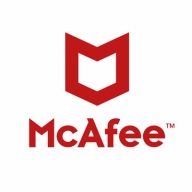


McAfee Total Protection and Check Point CloudGuard Code Security compete in the domain of data loss prevention and advanced threat detection, respectively. Check Point CloudGuard seems to have an edge with advanced threat detection capabilities that appeal to development environments requiring real-time assessments.
Features: McAfee Total Protection focuses on robust data protection, easy management, and affordability as key features. Its single management platform simplifies operations for endpoint security. Check Point CloudGuard Code Security offers advanced threat detection, automation, and comprehensive multi-cloud monitoring, tailored for development environments seeking real-time security assessments and analytics.
Room for Improvement: McAfee struggles with heavy system resource usage, lack of virtual desktop features, and high support costs. Users call for enhancements in its management console. Check Point needs to address documentation availability and slow technical support, with improvements suggested for API security and third-party tool integration.
Ease of Deployment and Customer Service: McAfee favors on-premises deployment for established IT infrastructures but faces challenges in support accessibility. Check Point offers flexible deployment across hybrid and private clouds, yet both solutions experience issues with quick and efficient technical support solutions.
Pricing and ROI: McAfee is viewed as expensive, with some users noting high licensing costs despite positive ROI reports. Its pricing model involves annual fees deemed affordable due to effectiveness. Check Point is recognized for cost-effectiveness, yet users desire better pricing transparency. Both products show ROI potential, with Check Point benefiting from partnerships to mitigate costs.
For the small project I was working on, using the basic tier provided a huge improvement at zero cost.
In terms of return on investment with Cloudflare, it costs my time to set them up, but basically once they're set up, it's done.
Cloudflare does not offer hands-on technical support to fix customer problems but rather a self-service model.
I would rate the technical support with Cloudflare as excellent every time I've had to call them.
I have primarily worked not with the tool's customer support but with the product's sales engineers and technical sales engineers, who seem to know their stuff.
I would rate the support for Check Point CloudGuard Code Security as good because we can quickly email support about any problems we encounter, and they reply instantly to provide help.
Improvements could be made in response time or quality as all of them can be rated a seven.
It is a SaaS tool, but the fact that they have workloads deployed across the world proves that it is a highly scalable tool.
The tool offers very good performance, even during high-traffic periods.
I rate the solution’s scalability an eight out of ten.
I rate the solution’s stability an eight out of ten.
The service is very stable with no impacts during high-traffic periods.
Sometimes there are some issues in the product itself; whenever they release a new version, vulnerabilities come into the picture, and we need to update the product to mitigate such issues.
Despite these challenges, overall, Cloudflare remains the preferred solution compared to Azure, AWS CloudFront, and Google Cloud Armor.
Areas like how assessment, discovery, and payload are dealt with and how it all comes into your organization can be considered when trying to make suggestions to Cloudflare for improvements.
There are some performance considerations when it comes to dynamic content that involves fetching data from databases or using APIs.
All the features we have on the firewall on the on-premises side, we also have under CloudGuard such as IPS, Anti-Bot, and all these blades are set up in our CloudGuard.
Sometimes there are some issues in the product itself; whenever they release a new version, vulnerabilities come into the picture, and we need to update the product to mitigate such issues.
I see enhancement in reporting for McAfee Total Protection for Data Loss Prevention as a potential area of improvement to think from a data asset perspective, not from a policy perspective, and do more analysis regarding the user's perspective rather than the policy's perspective.
I find it to be cheap.
I rate the product’s pricing a five out of ten, where one is cheap, and ten is expensive.
The tool is a premium product, so it is very expensive.
I rate the pricing for McAfee as competitive compared to other companies; they are in the same range, not a cheap product and not an expensive product.
The most valuable features of the solution are performance and security.
Techniques like minification and image compression reduce the size of assets, leading to better performance and faster user load times.
The solution has been able to compare it to the market, and I think the product has taken great strides in automating quite a bit of things, and they use a lot of AI.
The most valuable features of Check Point CloudGuard Code Security include our approach to manage it via the management we have on-premises, and we also deploy the same extension management of CloudGuard to manage all the virtual systems on Azure.
We are just restricting data to be uploaded, which is the best option that allows us to control organizational data, making it the biggest benefit for us in McAfee Total Protection for Data Loss Prevention.
I find unique value in McAfee Total Protection for Data Loss Prevention specifically in controlling the application from a DLP perspective; when a computer downloads a package, you can understand where it downloaded this package from, and you can create a policy regarding the source of the download.

| Company Size | Count |
|---|---|
| Small Business | 46 |
| Midsize Enterprise | 8 |
| Large Enterprise | 25 |
| Company Size | Count |
|---|---|
| Small Business | 12 |
| Midsize Enterprise | 4 |
| Large Enterprise | 6 |
| Company Size | Count |
|---|---|
| Small Business | 18 |
| Midsize Enterprise | 4 |
| Large Enterprise | 8 |
Cloudflare enhances web performance and security with features like CDN caching and DDoS mitigation while providing easy DNS management and intuitive setup through its user-friendly dashboard.
Cloudflare is recognized for its comprehensive web security and performance solutions. Speed improvements are achieved through caching mechanisms and DDoS protection, combining ease of DNS management with flexible page rules. The robust analytics and threat insight tools provide valuable data, assisted by a user-friendly dashboard allowing quick setup and configuration. An API offers dynamic DNS settings ensuring low latency and high performance across the globe.
What are Cloudflare's key features?Cloudflare finds utility across industries for DNS management and defense mechanisms. Its content delivery network assures fast content distribution and fortified security. Businesses integrate features like web application firewalls, load balancing, end-to-end SSL, and zero trust to protect websites from cyber threats while ensuring resilience and reliable performance.
Check Point CloudGuard Code Security provides real-time protection and compliance enhancement across diverse infrastructures, streamlining security management with automated processes and accurate threat detection.
Designed to support multiple code languages and cloud environments, Check Point CloudGuard Code Security offers seamless integration with existing workflows. By implementing intuitive dashboards and role-based access control, it enhances operational efficiency while minimizing human error. The system secures identities, API keys, and configurations, aligning with legal frameworks to strengthen infrastructures against modern threats. However, improvements are needed in documentation, multilingual support, and easier integration with SIEM. Attention to geolocation, logging, and learning curves also requires enhancement.
What are the key features of Check Point CloudGuard Code Security?Across the tech industry, Check Point CloudGuard Code Security is applied to enhance cloud and application security, providing thorough protection against vulnerabilities and breaches. By integrating security across cloud environments and data centers, organizations achieve improved practices and adherence to compliance standards.
We monitor all Data Loss Prevention (DLP) reviews to prevent fraudulent reviews and keep review quality high. We do not post reviews by company employees or direct competitors. We validate each review for authenticity via cross-reference with LinkedIn, and personal follow-up with the reviewer when necessary.